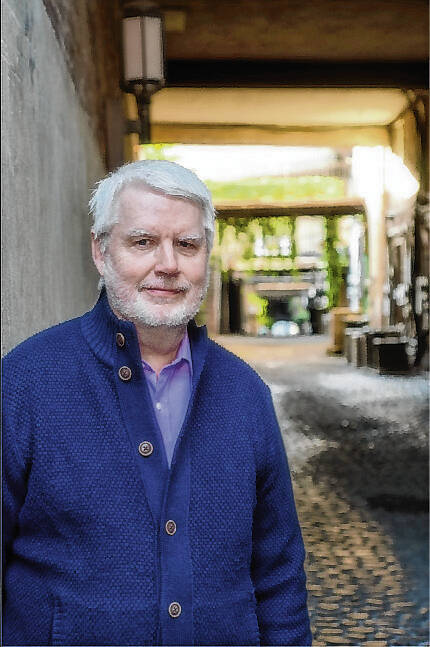Not that long ago, one network had the slogan “Must See TV.” I would frequently laugh when I heard the phrase.
I estimate that a good 95% of what I’ve watched on TV changed nothing in my life — not how I understood my world, my society, myself or how we should live. As a friend of mine said about a program we watched together, “That’s an hour in my life I’ll never get back.”
Nevertheless, over the past three or four years, our sons separately encouraged us to watch two programs that they assured us would be worth it. The first was “Ted Lasso;” the second is “The Bear.” I’m sure we got on the bandwagon late, something my sons know is a tendency of mine. If the culture is all abuzz about a program, a song or artist, I tend to pass. Don’t think this is good taste on my part; it’s just stubbornness.
But our sons were right. “Ted Lasso” and “The Bear” have surprised me, inviting me to think about something important — what in our age is the definition of a decent man?
There are a host of characters in both “Ted Lasso” and “The Bear,” but the central character in both dramas is a man. Ted Lasso and Carmen Berzatto aren’t flawless characters; in fact, both are broken. But what makes Ted and Carmy so compelling as lead characters is that their focus isn’t on themselves and the sorrows they carry. Instead, Ted’s and Carmy’s energy is outward directed.
On the surface, both men are involved in saving dying businesses — a sports organization and a restaurant, respectively. But what both men recognize is that they can’t turn their businesses around until the wounds of those working for them are healed. Instead of being men out for themselves, they are men for others.
Each of us has a filter through which we view and interpret life. Because my passion and career have been in learning about and teaching religious studies, religion is my filter. Through that lens, Ted and Carmy remind me of a central belief in Judaism known as Tikkun Olam. Why are we here in this world? The rabbinic answer is that each of us is here to help heal the world.
That’s a stunning claim as well as a belief that many men would challenge. All over the world, we see men in politics and business pursuing power — not the power to heal, but the power to win, to dominate others.
One of the great joys of my teaching career was inviting students to read and discuss Bernard Malamud’s “The Assistant.” As is true of “Ted Lasso” and “The Bear,” the central character in Malamud’s novel is a man, Morris Bober. I never led my students to see Morris, the owner of a small grocery store, in a certain way. Instead, I asked students, after reading “The Assistant,” to choose between two interpretations. Do they see Morris as a hapless failure or as a moral giant and example in the story?
That forced-choice question formed the basis of a debate between the two interpretations. I set up the room so that the two sides faced each other. Some years, the debate would go on for a week. Some years, students on one side of the room would cross over to the other side in the debate, being convinced by something another student argued. Some years, students became so passionate that they yelled at one another.
My role was not to declare one side to have the right interpretation and the other side to be wrong. Malamud left that decision up to readers. In a similar way, “Ted Lasso” and “The Bear” leave viewers to decide if Ted and Carmy are weak men or are models of masculinity that we desperately need today.
What I do believe without reservation is that the question posed by Tikkun Olam — Is my life helping heal the world? — isn’t a question anyone, male or female, can answer just once. We answer it every day in every decision we make.
David Carlson of Franklin is a professor emeritus of philosophy and religion. Send comments to [email protected].





